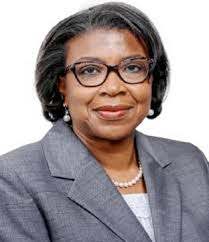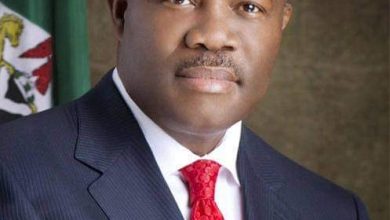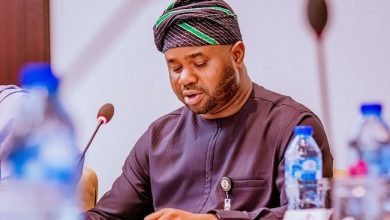Nigeria’s Domestic, External Debt Service Gulps N15.22trn in 10 Years

Nigeria in the past 10 years has spent a whopping sum of N15.22trillion to service its domestic and external debts, data gathered on the official website of Debt Management Office (DMO) has revealed.
Analysis of the DMO numbers showed that domestic debt service contributed 88.7per cent or N13.5trillion, while external debt interest/service contributed 11.35 per cent or N1.73 trillion ($5.3 billion) out of the N15.1trillion total debt services between 2012 and 2021.
A further check revealed that the federal government in 10 years has consistently paid interest on its Nigerian Treasury Bills (NTB), FGN Bonds, Sukuk Bonds, Saving Bonds and Nigerian Treasury Bonds, while interest on Multilateral, Eurobond borrowings among others continued to increase steadily.
The DMO data revealed that interest on NTBs and FGN Bonds, two major instruments the government used in borrowing funds to bridge the budget deficit, amounted to N3.4trillion and N9.27trillion in 10 years, respectively.
The external debt interest/service on Multilateral and Eurobond, two major sources the federal government borrowed funds from foreign financial institutions amounted to $940.86million and $3.42billion in the years under consideration.
The multilateral financial institutions FG pays interest/service on loans borrowed are: International Bank for Reconstruction and Development, Africa Dev. Bank, International Fund for Agric. Dev., Africa Dev. Fund, European Dev. Fund, Arab Bank for Economic Development in Africa (BADEA), among others.
A further look at the data showed that FG domestic debt stock by Instrument moved to N19.24trillion as at December 31st, 2021 from N6.54trillion reported by DMO in 2012, while Nigeria’s External Debt Stock closed 2021 at $38.391million from $6.527million in 2012.
In addition, Nigeria’s total public debt portfolio as at December 31, 2021 stood at $95.779 million (external) and N39.556billion (domestic) from $48,496.23 (foreign) and N7,554,258.00 (domestic) as of December 31, 2012.
However, the breakdown of domestic debts service showed a movement from N720.55billion in 2012 to N2.05trillion in 2021, while external debt service closed 2021 at $1.10 billion or N455.99billion from $131.48million or N20.35billion reported by DMO in 2012.
It is also worth noting that N2.05trillion and $1.10billion spent on servicing domestic debts and external debts in 2021 were the highest on DMO record.
Barring any change in plans, the FG is to spend a cumulative amount of $10.19billion servicing the nation’s external debt obligation within a 10 years period covering 2021 and 2030, according to DMO.
While FG continues to spend heavily on servicing both domestic and external debts and accumulating new loans, its revenue bucket is shrinking further, largely due to underperformance of oil -sector revenue amid increasing oil thefts in the Niger-Delta region of the country.
However, since the cartel decided to increase production, Nigeria has found it difficult to meet its own quota, despite a significant surge in the price of crude oil.
Analysts have raised concerns as the federal government continues to obtain new loans from both local and external sources, despite growing debt profile and servicing cost.
The International Monetary Fund (IMF) had predicted that Nigeria’s debt service-to-revenue ratio would jump to 92 per cent in 2022 from 76 per cent in 2021.
Speaking with THISDAY, the former president of Chartered Institute of Bankers of Nigeria (CIBN), President, Prof. Segun Ajibola said, “If you look at the fiscal budget in the past two years, funding of the budget has been about 30-40 per cent and that alone has put pressure on the financing profile of Nigeria.
“Of course, our major source of revenue which is the oil currently unstable because of the global and domestic issues attached to Oil prices.
“These challenges have reduced Nigeria’s capacity to generate revenue initially. However, governance must continue and there is a need to borrow both local and foreign. Mind you, when you borrow, you will have to service them, which has contributed substantial to our debt service burden and it is expected to impair other aspects of financing of government, especially the capital expenditure.”
Also speaking, Prof. Hassan Oaikhenan of the Department of Economics, University of Benin maintained that increasing borrowing and debt services have adverse implications on the nation’s economy.
“There is nothing bad in borrowing if its essence was used to finance key projects. If the borrowing was used to finance consumption, that means the borrowing present a deadweight loss to the economy.
“It is clear that the more the debt, the more debt servicing and it has implications for inter-generations welfare. All these are what a responsible government cannot look away.
“Unfortunately, what we have had over the past seven years plus is that this government has been rather irresponsible in borrowing because we keep incurring debts without really seeing the productive use to which such debts were borrowed.”
He, thus, called on the government to be responsible in its spending and cut down on the cost of governance, two starting points to get Nigeria’s economy out of tripped debt services.
On his part, the CEO, Wyoming Capital & Partners, Mr. Tajudeen Olayinka said debt servicing by the federal government over the years has encouraged investors to provide additional support to the government with respect to further investment in government securities.
According to him, “It presents government in good light, with the opportunity to fund developmental projects across the country.
“The negative aspect of debt servicing in Nigeria is the sustainability problem that has now greeted the current administration of President Muhammadu Buhari, whereby, more than 100per cent of revenue is now being expended on debt servicing, giving room for possible default and failure of government in no distant future, especially with respect to foreign debt component.”
Commenting on the rising debt profile, the CEO, Centre for the Promotion of Private Enterprise (CPPE), DR Muda Yusuf noted that, “When we take account of borrowings from the CBN and the stock of AMCON debt, the debt profile would be in excess of N60 trillion. Although government tends to argue that the conditions was not a debt problem, but a revenue challenge. But debt becomes a problem if the revenue base is not strong enough to service the debt sustainably. It invariably becomes a debt problem and possibly a debt crisis. Government actual revenue can hardly cover the debt service obligations.
“Which implies that the entire capital budget and the recurrent expenditure may have to be funded from borrowing. This is surely not sustainable. The finance minister reported recently that in the first four months of this year, debt service to revenue ratio was over 100per cent. What is needed is the political will to cut expenditure and undertake reforms that could scale down the size of government, reduce governance cost and ease the fiscal burden on the government.”
CULLED FROM THISDAY






